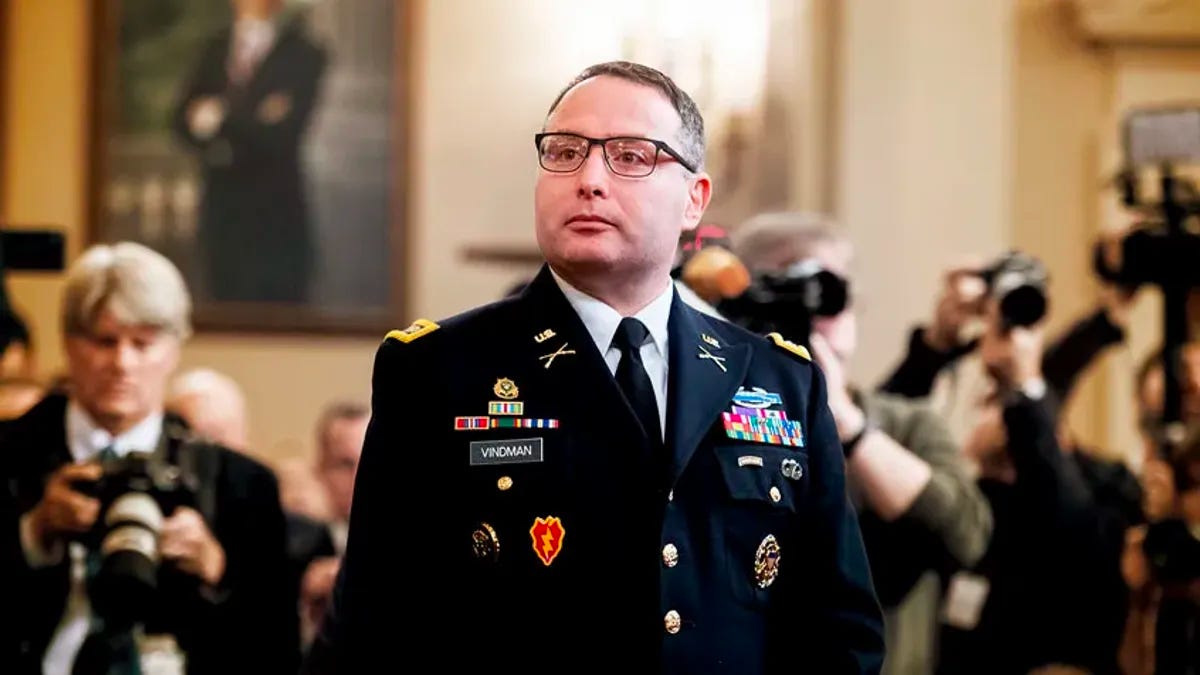Five Questions with Alexander Vindman
A Cross-Post from Joyce Vance’s Substack
The text below originally appeared on Civil Discourse with Joyce Vance earlier this week. I am cross-posting here to share our conversation about The Folly of Realism, the future of U.S. foreign policy, and why principled leadership matters now more than ever. Many thanks to Joyce for the thoughtful discussion:
“I know it isn’t Friday, but given events over the weekend, I thought we’d get straight to it. This is the second time we’ve been fortunate enough to have Alexander Vindman as a guest for “Five Questions.” It’s especially timely with Trump’s Friday night appointment of “Razin’ Caine” as the head of the Joint Chiefs and other firings within the military.
Lieutenant Colonel Alexander Vindman, U.S. Army (Retired) served as the Director for European Affairs on the White House’s National Security Council during the first Trump administration.
Vindman became a household name as the whistleblower who exposed Donald Trump’s efforts to extort Ukrainian President Volodymyr Zelensky into ann…



